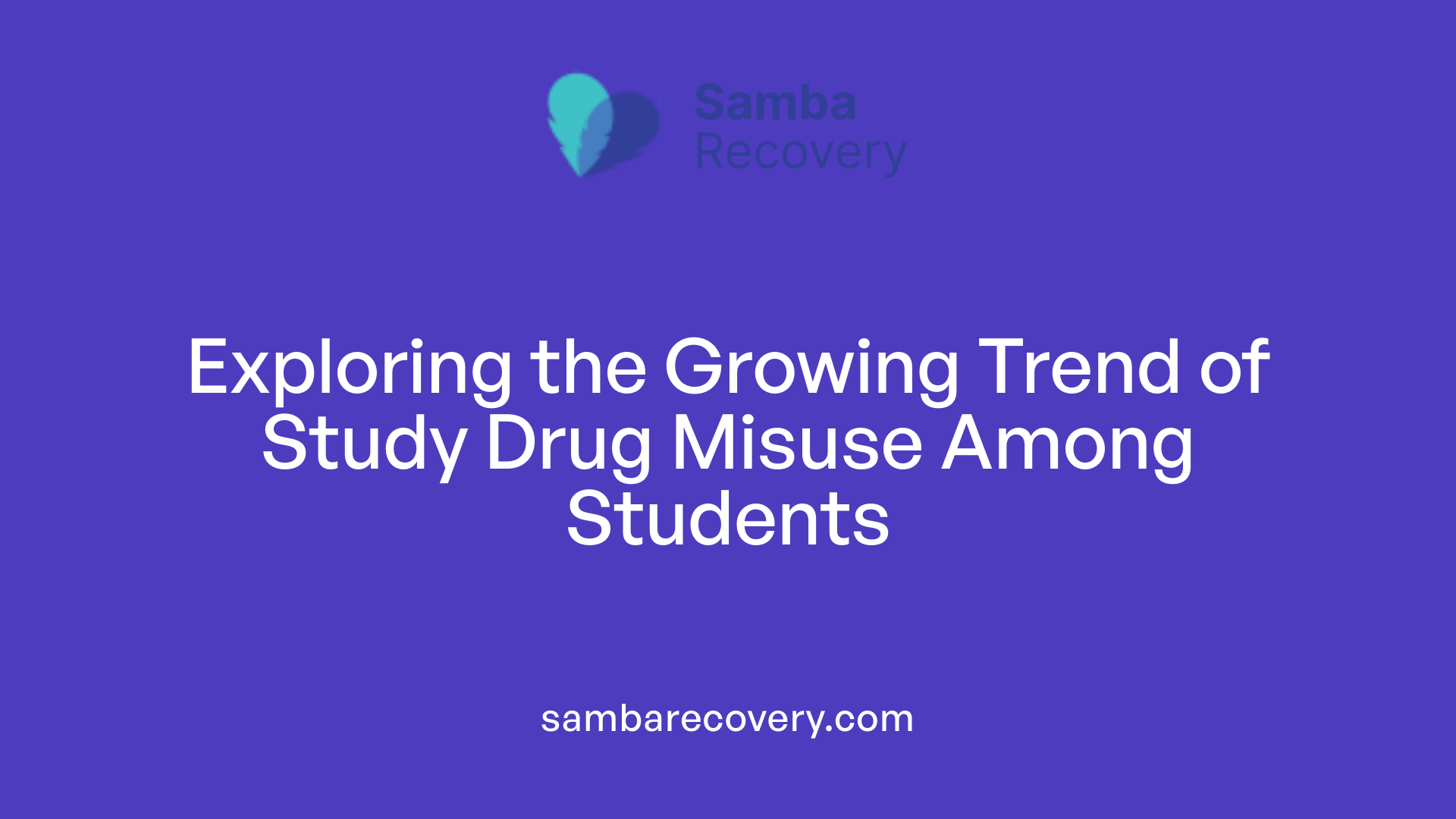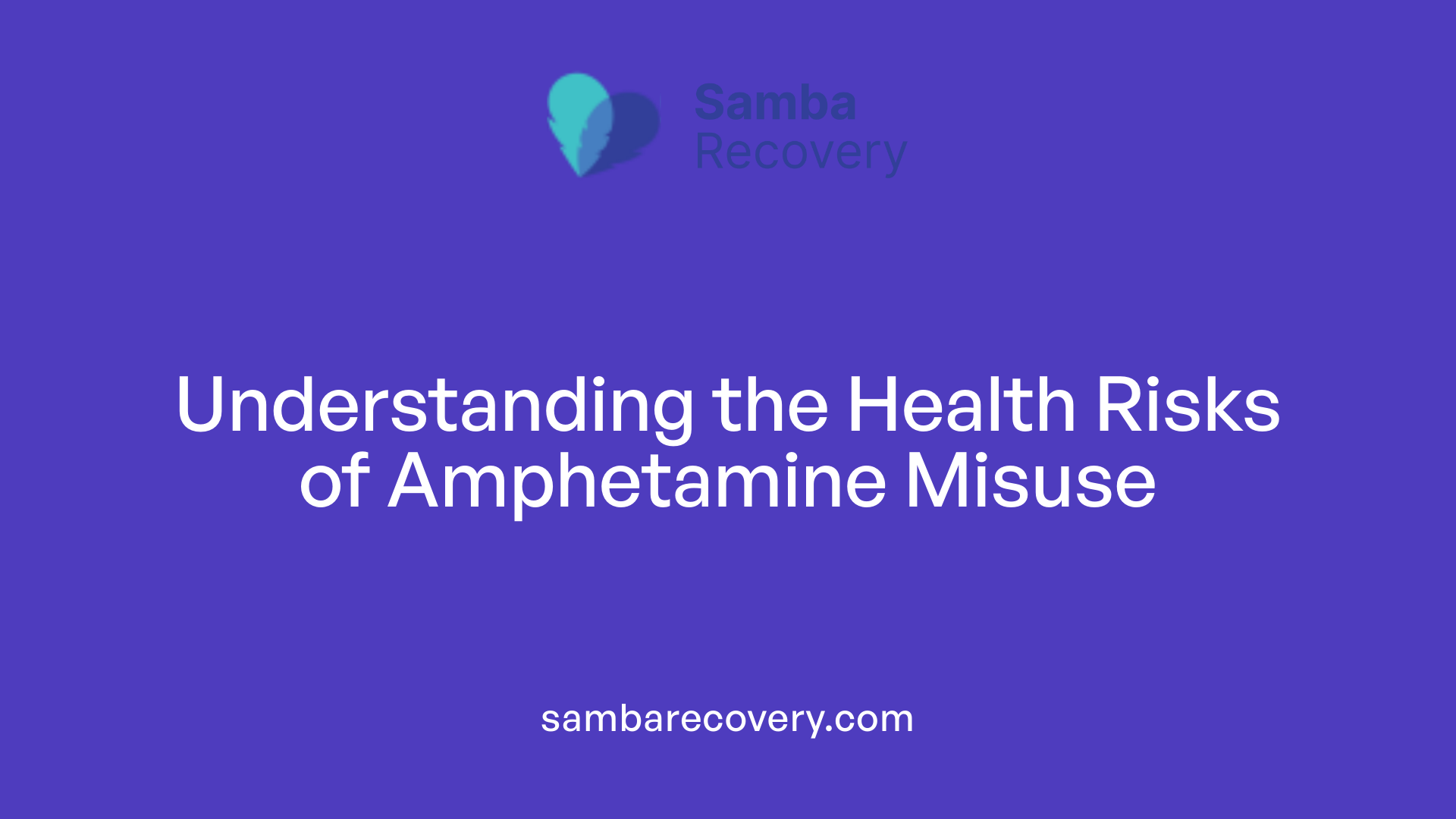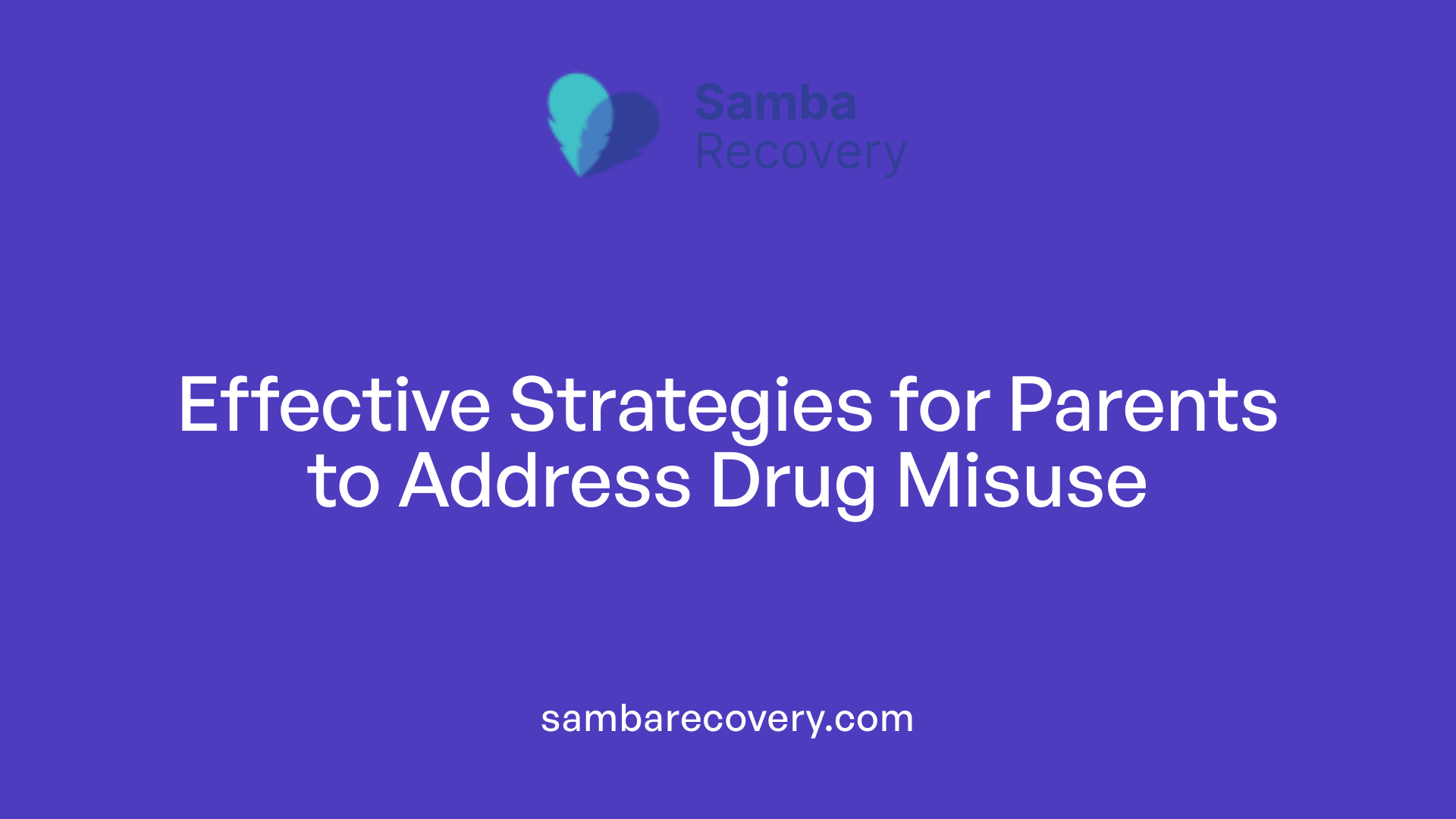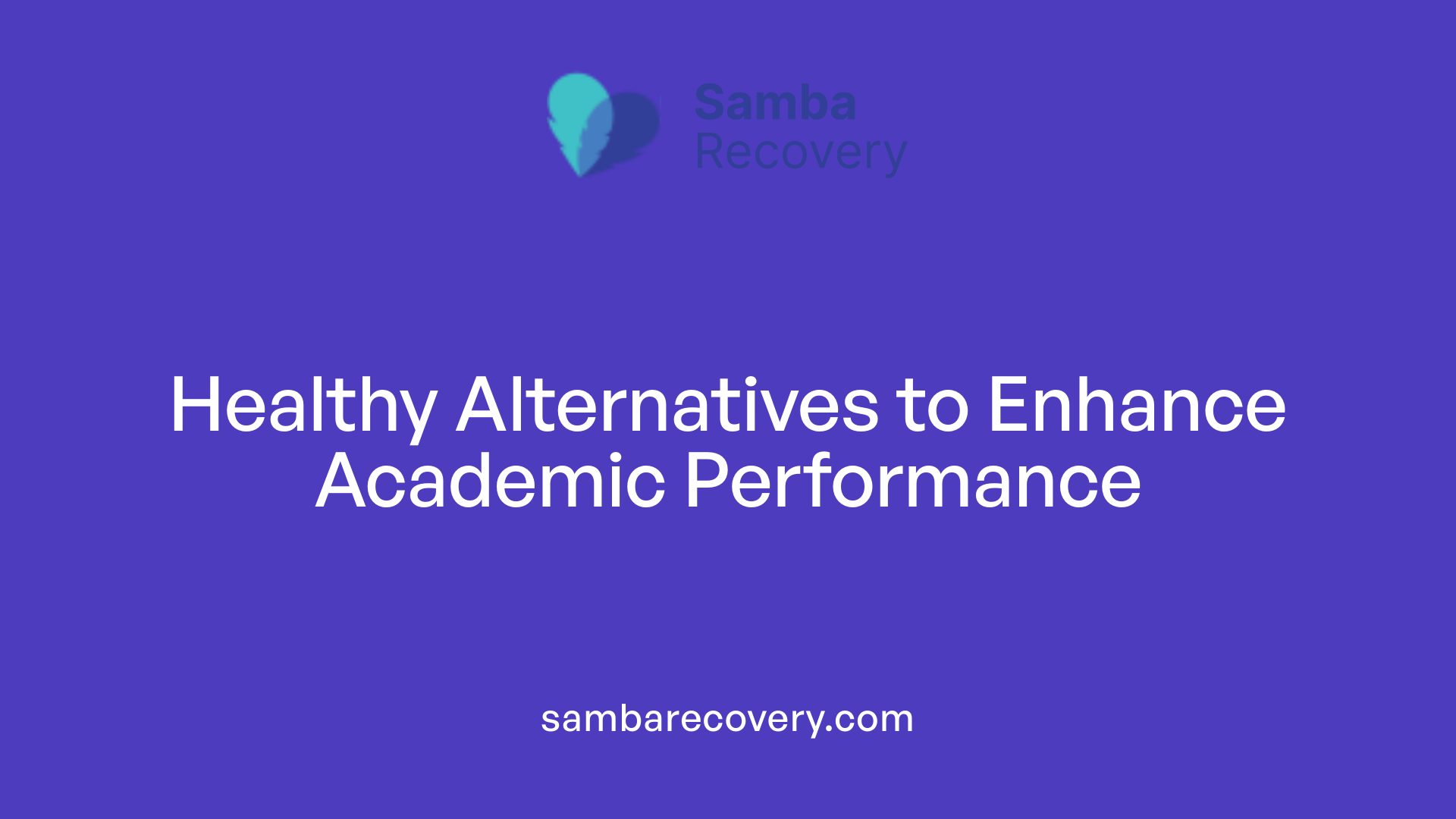Introduction
With increasing academic pressures, many students and young adults are turning to prescription stimulants, such as amphetamines, to enhance their performance. While these drugs might seem like a quick fix for better grades, they pose significant risks to mental health and overall well-being. This article explores the extent of amphetamine misuse, its potential dangers, and strategies for parents to address these issues.
The Reality of Study Drugs in Academic Environments

Misuse of Prescription Stimulants Like Adderall Among Students
The misuse of prescription stimulants, particularly Adderall, is becoming increasingly common among students. Many young people, aiming to enhance their academic performance, resort to these drugs without a prescription. Using Adderall as a "study drug" is prevalent, especially on college campuses where academic pressures are intense. Reports suggest that approximately 20-30% of college students misuse Adderall for purposes like staying awake or improving focus.
However, studies indicate that using these stimulants does not result in significant improvements in academic performance. Misusing prescription stimulants can instead lead to negative health outcomes such as increased anxiety, insomnia, and even serious cardiovascular issues.
Academic Pressures Leading to Drug Misuse
The desire to achieve high grades often drives youth to explore shortcuts like Adderall, particularly during stressful periods such as exams. Many believe that these drugs will aid their concentration and stamina. Yet, despite the increasing reliance on stimulants, research suggests that effective studying is better supported through fundamental techniques:
- Adequate Sleep: Prioritizing rest is crucial for cognitive function.
- Study Sessions: Dividing study time into manageable portions enhances retention.
- Reducing Distractions: A focused environment leads to more effective learning.
Instead of depending on potentially harmful drugs, students can benefit from using academic resources like tutoring and mental health support to better manage their workload. The risks of misusing study drugs like Adderall undoubtedly outweigh their perceived benefits, highlighting the importance of healthy study habits.
Do Study Drugs Like Adderall Improve Grades?
Despite popular belief, studies indicate that using prescription stimulants like Adderall or Ritalin without a prescription does not significantly improve academic performance. Misusing these study drugs can lead to a variety of negative side effects, including increased anxiety, irregular heartbeat, and the risk of addiction. Effective studying is better achieved through proper techniques such as sufficient sleep, breaking study sessions into manageable parts, and reducing distractions. Instead of relying on these drugs, students can access resources such as tutoring and mental health support to enhance their academic success. Overall, the risks of using study drugs without a prescription outweigh any perceived benefits.
Understanding Amphetamines and Their Risks
Which drugs contain amphetamine?
Common prescription drugs that contain amphetamine include methylphenidate (Ritalin®), amphetamine and dextroamphetamine (Adderall®), and dextroamphetamine (Dexedrine®). These medications are primarily prescribed to treat Attention Deficit Hyperactivity Disorder (ADHD) and narcolepsy.
Amphetamines are classified as Schedule II stimulants in the United States due to their high potential for abuse and limited medical uses. Because of this classification, the misuse of these drugs poses serious health risks, especially among teenagers and young adults seeking academic advantages.
Potential for addiction and dependency
The potential for addiction and dependency on amphetamines is significant. When abused, whether it’s by taking higher doses or using them without a prescription, these medications can lead to compulsive behavior characterized by increased tolerance and a need for the drug just to feel normal.
Chronic use often results in withdrawal symptoms, such as fatigue, depression, and sleep disturbances, which can further complicate a young person’s physical and mental health.
Furthermore, misuse can result in severe side effects:
- Cardiovascular Issues: Increased heart rate and blood pressure.
- Mental Health Disorders: Risk of anxiety, paranoia, and even psychosis.
- Cognitive Impairment: Despite the initial perception that these stimulants enhance focus and academic performance, research shows that misuse can lead to poor academic outcomes and impaired cognitive functions.
The alarming trend of stimulant abuse in academic settings underscores the need for awareness and open communication about the risks associated with these drugs.
Health and Academic Outcomes of Amphetamine Misuse

Health Risks Associated with Amphetamine Misuse
Substance misuse, especially among youth, is increasingly alarming. Amphetamines, often misused to gain an academic edge, can lead to serious dependency and addiction. The health risks involved are substantial and include:
- Cardiovascular Problems: Increased heart rate and blood pressure, leading to potential heart disease and stroke.
- Psychological Issues: Anxiety, depression, mood swings, and in severe cases, psychosis.
- Cognitive Impairment: Long-term use can hinder memory and focus, counterproductive to academic goals.
- Physical Side Effects: Insomnia, nausea, and significant weight loss can significantly impact a young person’s physical health.
These consequences highlight the dangers linked to amphetamine misuse, particularly during critical developmental years.
Impact on Academic Performance
The allure of performance-enhancing drugs like amphetamines may tempt students to seek out these substances. However, research indicates that, despite initial improvements in alertness, these drugs do not lead to better academic outcomes in the long run.
- Misconceptions about Performance: Many believe that amphetamines improve grades and focus; however, studies confirm that non-medical use often leads to poorer academic results.
- Counterproductive Effects: Over time, users may experience decreased focus and motivation, declining grades, and irregular study habits.
- Dependency Issues: The cycle of misuse often results in addiction, further impairing academic performance as withdrawal symptoms manifest.
In light of these findings, it is clear that the risks associated with the misuse of amphetamines far outweigh any perceived benefits related to studying.
| Aspect | Risks | Outcome |
|---|---|---|
| Health Risks | Addiction, heart issues, anxiety, psychosis | Impaired overall health and well-being |
| Academic Performance | Short-term focus gain, long-term decline | Falling grades, decreased motivation |
| Dependency and Withdrawal | Increased tolerance, compulsive use | Need for professional intervention |
Is amphetamine good for studying?
Amphetamine use has been reported to increase alertness and energy, which may seem beneficial for studying. However, it is important to note that using amphetamines without a prescription poses significant risks, including the potential for addiction, heart problems, and severe mood disorders. Research shows that, while they might enhance short-term focus, amphetamines do not necessarily improve long-term academic performance. Furthermore, the side effects can include memory loss and emotional instability, which could hinder studying in the long run. Therefore, it is crucial to weigh the risks and consult a healthcare professional before considering amphetamines as a study aid.
Signs of Amphetamine Abuse in Adolescents
Physical and Behavioral Signs of Drug Misuse
Recognizing the signs of amphetamine misuse in adolescents is crucial for early intervention. Physical signs often include:
- Changes in appetite: Youth may experience decreased hunger or significant weight loss.
- Insomnia: Difficulty sleeping or irregular sleep patterns is common among those misusing stimulants.
- Increased energy: While these drugs can cause initial alertness, excessive activity is a red flag.
- Poor hygiene: Decline in personal care and grooming may indicate substance misuse.
- Dilated pupils: This can be a telltale sign of stimulant use.
Behavioral signs can also provide insight. Look for:
- Mood swings: Rapid changes in emotional state or increased irritability.
- Secretive behavior: A tendency to hide activities, particularly regarding study habits.
- Engagement in risky behaviors: This includes mixing substances, which often correlates with misuse.
How Misuse May Manifest in School Performance
The impact of amphetamine misuse on academic performance can be significant. Some common academic signs include:
- Declining grades: Initially, students might see a boost in performance, but long-term misuse often leads to a downward trend.
- Inconsistent class participation: Regular attendance may drop off, coupled with unusual requests for extensions on assignments.
- Unusual study habits: Increased reliance on drugs could shift focus to irrelevant tasks instead of effective studying.
By being vigilant about these signs, parents and educators can act to protect adolescents from the dangers associated with prolonged amphetamine misuse.
Cultural Pressures and Normalization of Stimulant Use
Cultural Attitudes Towards the Use of Stimulants
In recent years, the use of prescription medications like Adderall and Ritalin as so-called "study drugs" has become increasingly normalized among students. Many view these stimulants not as medications for specific conditions but as legitimate tools for academic success. This shift in perception is troubling, as research shows that using these drugs without a prescription does not improve academic performance for those without ADHD.
Pressures to Excel Academically and Peer Influence
The academic environment contributes significantly to this trend. Intense pressure to achieve high grades and competitive college admissions forces students to seek edges wherever they can find them. Peer influence plays a role as well, with some students obtaining stimulants from friends, further entrenching the belief that these drugs are acceptable for performance enhancement.
A survey indicated that one in four teens admitted to abusing a prescription drug, with this behavior often normalized within certain peer groups. Between the pressure to excel and shifting cultural attitudes, stimulant misuse among students is a growing public health concern.
The Accessibility of Stimulants and Prescription Misuse
How do students acquire prescription stimulants?
Students often find it alarmingly easy to access prescription stimulants like Adderall and Ritalin. According to reports, many obtain these drugs from family or friends who have legal prescriptions. This peer-sharing culture lowers the barriers to misuse, as these medications are viewed as accessible solutions to academic pressures.
In some cases, students are even willing to pay for these drugs or trade them for other substances, making the issue more pervasive. The normalization of stimulant use for studying creates an environment where misusing such medications becomes increasingly common, contributing to a rise in addiction and dependence.
What are the legal ramifications of misuse?
Misuse of prescription stimulants carries serious legal consequences. They are classified as Schedule II controlled substances, meaning that possession without a valid prescription can result in criminal charges. Educational institutions may impose disciplinary actions, including suspension or expulsion. These legal ramifications highlight the urgent need for awareness and education regarding the risks associated with non-medical use of prescription drugs.
Parent and Guardian Recommended Interventions

Strategies for Discussing Drug Misuse
Effectively discussing drug misuse with children requires a careful and thoughtful approach. Parents should consider the following strategies:
- Initiate the Conversation: Start discussions about drugs early and maintain regular conversations. Normalizing these discussions can help children feel comfortable addressing concerns.
- Provide Education: Inform your children about the risks associated with amphetamines and other stimulants, particularly regarding academic performance. Make them aware that misuse does not guarantee better grades and can lead to severe health risks.
- Share Real-Life Examples: Use stories or statistics to illustrate the consequences of drug misuse—this can make discussions more relatable and impactful.
Creating an Open Dialogue with Children
Creating a safe space for communication is crucial. Parents can foster open dialogue by:
- Listening Actively: Encourage children to share their feelings and experiences without fear of judgment. Show empathy and consideration during these discussions.
- Establishing Boundaries: Clearly communicate the family’s stance on drug use and the associated consequences for breaking those rules.
- Encouraging Critical Thinking: Teach children to evaluate peer pressure and the narratives around drug use critically. Ask them to consider the long-term effects and alternatives to performance enhancement.
Conclusion
By engaging in proactive discussions and maintaining an open channel of communication, parents can better equip their children to resist the pressure of drug misuse.
Prevention and Treatment Resources for Amphetamine Misuse
Available Resources for Substance Misuse Intervention
Substance misuse, particularly among youth, presents serious challenges. Fortunately, various resources exist to help combat this issue. Hotlines such as the Substance Abuse and Mental Health Services Administration (SAMHSA) provide 24/7 assistance. Counseling services in schools can offer support and interventions tailored for students struggling with addiction.
In addition, community programs focused on health education help disseminate knowledge about the risks associated with amphetamine misuse. Local health departments often organize workshops aimed at teaching young people about substance use and the importance of mental health.
Educational Programs Aimed at Prevention
Educational initiatives are pivotal in preventing amphetamine misuse among children. School-based programs that foster open communication encourage students to discuss pressures they face regarding academic performance. Studies show that peer-led workshops can destigmatize the conversation around substance use.
Furthermore, involving parents in educational sessions promotes discussions on medication misuse risks and healthy boundaries. Parents can play a vital role by establishing an environment that supports transparency and understanding. By educating youths on the dangers of nonmedical prescription drug use and providing alternative study strategies, these programs create a comprehensive approach to prevention.
Looking Towards a Healthier Academic Journey

Alternative strategies to enhance academic performance
Instead of turning to amphetamines or other stimulants, students can explore healthier approaches to boost their academic performance. Techniques include:
- Structured Study Sessions: Setting specific times each day dedicated to focused study can enhance retention and understanding of material.
- Prioritizing Tasks: Using tools like to-do lists can help students manage their workload more effectively, ensuring they focus on the most important assignments.
- Limiting Distractions: Creating a designated, distraction-free study area promotes concentration.
- Healthy Lifestyle Choices: Maintaining a balanced diet, ensuring adequate sleep, and staying active can significantly improve cognitive function, aiding learning without the need for stimulants.
Promoting mental health and well-being among students
Fostering mental health is vital as students navigate academic pressures. Here are some strategies:
- Open Communication: Encouraging dialogues between parents and children about stressors can build trust and facilitate early interventions.
- Mindfulness and Relaxation Techniques: Practices like meditation, yoga, or deep breathing exercises can help mitigate anxiety and improve focus during stressful periods.
- Access to Resources: Schools should provide access to counseling services, academic support, and peer mentoring programs, creating environments where students feel supported and valued.
Ultimately, by implementing these strategies, students can achieve their goals healthily and sustainably.
Conclusion
Addressing the misuse of amphetamines among students requires a multi-faceted approach involving education, prevention, and support. By fostering open communication and awareness, parents, educators, and communities can work together to reduce reliance on these substances, encouraging healthier and more sustainable academic practices. It is crucial to prioritize mental health and provide students with the resources they need to succeed without resorting to dangerous stimulants.
References
- Has Your Child Abused Amphetamine Drugs to Boost Their Grades?
- Abuse of Prescription ADHD Medicines Rising on College Campuses
- Most reported substance use among adolescents held steady in 2022
- NCDAS: Substance Abuse and Addiction Statistics [2023]
- Has Your Child Abused Amphetamine Drugs to Boost Their Grades?
- Amphetamines | CAMH
- “Study Drug” Abuse by College Students: What You Need to Know
- 6 things everyone should know about study drugs
- Common ADHD Medications & Treatments for Children






